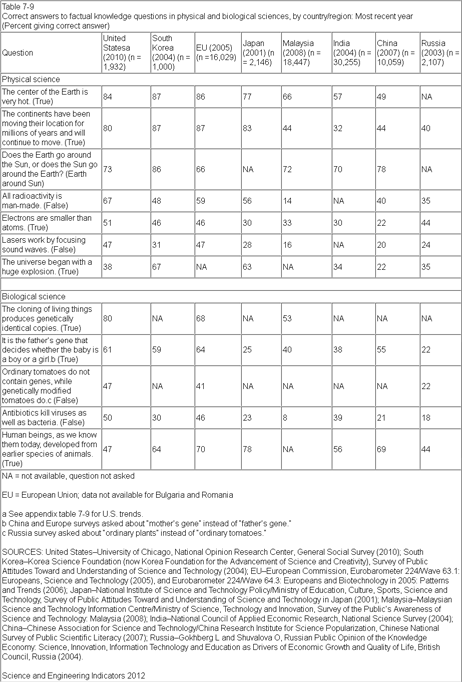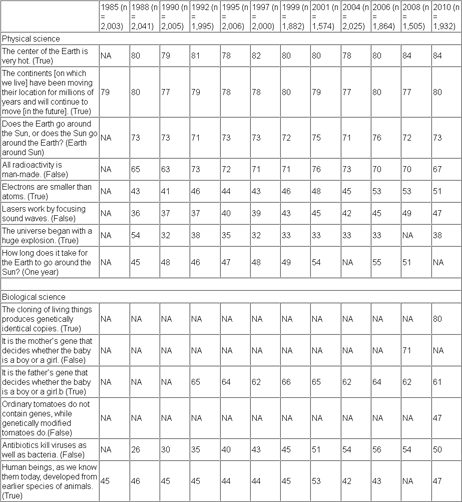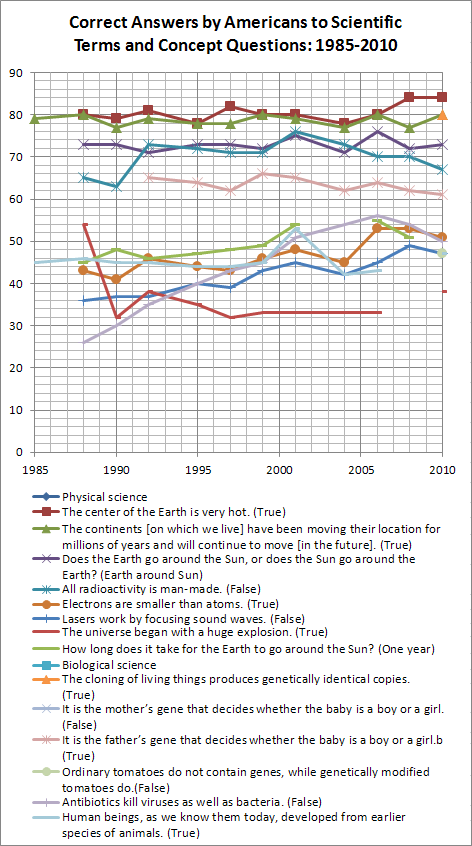 I can't remember the exact reason now, but I recently did a Google search on 'book of job' followed by a rude word to describe a rude person. I know - not the most polite of searches, but that's what it was. And I came across a link to this page on Yahoo Answers, Doesn't the book of Job show how unjust and cruel God is?
I can't remember the exact reason now, but I recently did a Google search on 'book of job' followed by a rude word to describe a rude person. I know - not the most polite of searches, but that's what it was. And I came across a link to this page on Yahoo Answers, Doesn't the book of Job show how unjust and cruel God is?
The first two chapters of the Book of Job are pretty short. If you're not already familiar with the story, I'd recommend reading them and the final chapter before going on with the rest of this blog entry:
If you're too busy for even that, here's the quick synopsis - Job was a very successful man. One day, when Satan was visiting with God, God bragged on Job, "Have you noticed my servant Job? He is the finest man in all the earth. He is blameless--a man of complete integrity. He fears God and stays away from evil." Satan challenged God that Job was only faithful because he was so blessed, so God said, "All right, you may test him. Do whatever you want with everything he possesses, but don't harm him physically." So Job lost everything he had (including his servants and children), but stayed faithful to God. In their next encounter, Satan got God to allow Job to be harmed physically, so long as his life was spared. So Job was afflicted with boils from head to foot. Then follows 39 chapters of Job complaining of his troubles, questioning why they befell him, his friends responses, and even God's responses. Finally, in Chapter 42, God restored Job to his former glory - more so in fact - with even more camels, oxen, donkeys, sons and daughters.
Reading through that Yahoo Answers page, I find it somewhat amazing the rationalizations that Christians go through in justifying this book and trying to make it consistent with a loving god. Here are just a few examples. (Note that the references to Job's wife are due to the original questioner stating that Job's wife died along with his children.*)
It was all a test that made Job stronger rather than cause him to rebel against The Loving and Caring God of the Universe. And the dead relatives and servants of Job are going to go to a better place. So God did nothing wrong and He never does anything bad. You can count on that because God gave Job much better things after his suffering.
you really are of the devil if you can read how the devil killed Jobs children and STILL blame God.
If I asked you to say something about satan I suppose you'd say what a good ununderstood chap he is.
He has YOU blinded, lets hope your children grow up to be better - when you are dead and gone maybe there will arise a better generation.
All Satan asked for was authority over Job.
Job 2:4.
Job's wife never died. He continued after this 'test' with the same wife.
(You said you read the account. you should know).
The fact his children died is an example of Satan going too far, not abiding by the agreement.
BLASPHEMY AND LACK OF UNDERSTANDING
IT WAS ALL SATANS idea and God allowed it....pray for some wisdom and guidance...
God already knew Job was a man of outstanding faith and integrity, so he allowed Satan to try and prove his point. He did warn Satan NOT to kill Job. Notice, though, when all was said and done, God gave Job an additional 140 years, 10 more children, and increased his wealth. Additionally, in the earthly resurrection Job will receive back to him all 20 of his children, and those of his servants that Satan killed.
God did not allow Satan to harm Job, take his possessions or kill his children in order to test him. Satan made false charges against Job and all humans and God had faith in Job to be able to prove Satan's charges false. Job did not remarry. His wife did not die. She gave birth to more children.
The book may be entitled Job, but it's really about satan. It's about showing him that no matter what the circumstance, those that have a strong relationship with God cannot be removed or drawn away from it even when divine protection is temporarily removed.
First, I'm going to address something that wasn't even mentioned in most of those comments on the Yahoo Answers page. As I already quoted, in the first chapter, God told Satan to "Do whatever you want with everything he possesses, but don't harm him physically." And just a few verses later, the Bible describes how Job's servants were killed - some murdered, some by "the fire of God", and how his children were killed after a wind knocked over the house they were in. Stop and think about that. The Bible is putting Job's children and servants among his possessions - that he owned them. I've discussed the ambiguity of servant vs. slave in the Bible before, and this just reinforces that according to the culture in which the Bible was written, it was okay for a man to own other people.
Then there's the question of just how good Job was. For those 39 chapters following his misfortunes, Job went on and on whining about how unlucky he was. What a self centered man. What about his children, who were crushed to death? Or his servants, who were murdered? Or his servants' wives, who were widowed? Or his servants' children, who were made fatherless, or maybe even orphaned? All those people killed, and all those families affected, and all Job could think about was how unlucky he was. If he was what God considered "the finest man in all the earth", there must not have been very many fine men around at the time, or God had a warped sense of what constituted fine.
Okay, now let's get into how this book of the Bible reflects on God. Most Christians believe that God is all knowing, all powerful, and good and loving. So, when Satan challenged God about Job's character, God should have already known what was in Job's heart, and shouldn't have needed to put Job to any test. God already knew the answer. So what was the reason for allowing this test to occur? Was he merely trying to demonstrate to Satan Job's loyalty? That seems a bit callous, putting a man through such troubles just to prove a point to a fallen angel. And of course, God knew Satan's character before the tests were begun, so even allowing for free will and assuming God didn't look into the future to know exactly what was going to happen, God knew what Satan was capable of and how Satan would likely torture Job. But even assuming that Satan surprised God, God is still supposed to be all powerful. So even if Satan violated the terms of the deal, God sat back and allowed Satan to continue to torment Job. In the real world, when someone has the power to intervene and prevent the injury of someone else, especially when there's very little cost to the first person, at the very least we'd consider it immoral not to act, if not criminally negligent.
Just imagine any parent with a child. If a known criminal came up to them and challenged them about the character of their child, would it be okay to let the criminal torment their child to test the child's character? What if there were terms, and the criminal violated the terms, would you expect the parent to let the challenge continue? It's ludicrous when you put it in real human terms. I don't know what should make it substantially different in divine terms.
And the above assumes that it was Satan causing all the harm, but some people were killed by the "fire of God", and the end of Job 2:3 seems to indicate that God was responsible for at least some of Job's suffering, "And he has maintained his integrity, even though you urged me to harm him without cause." That would be like a criminal going up to a parent, and convincing the parent to harm their own children.
Moving past the challenge itself, when God finally showed up to talk to Job directly, the Lord went on and on bragging about how powerful he was. It sounded like a 'might makes right' argument, not based on any type of real morality.
And then, when Job was finally restored to his glory, the manner in which it was done is still unsettling. After having lost all of his children, they were simply replaced, as if this made everything alright. I'm a parent myself, and I love my daughter intensely. If tragedy were to strike and my wife and I were to lose her (which I hate writing even as a hypothetical), it would be heart breaking. And it's an insult to even consider that she could be replaced with a new child.
I realize that this is where Christians quit looking at death as a bad thing, since they believe in an afterlife, but think about how people actually react to death. Nobody celebrates at a funeral. They're always sad affairs. Loved ones are gone, and they're going to be missed terribly. Pretending that there's a heaven doesn't take away the grief. And in the story of Job, there's also the manner in which everybody died. It wasn't the Angel of Death taking them peacefully in the night. Everybody died a painful, violent death.
I have to admit, that the Book of Job isn't entirely inconsistent with a notion of a god. It's just inconsistent with the mainstream Christian view. If you take away one of the following three assumed qualities of God, either loving, all-knowing, or all-powerful, then the Book of Job makes much more sense. A capricious god, or one who didn't care deeply about his/her creations, would have no qualms about putting a person through such a test. Even a god who didn't know how the test would play out might go through with it. But that's not the type of god most Christians believe in.
So, if the Book of Job reveals anything, it's not a God worthy of praise and adoration or worship out of love, but a God worth worshiping only out of fear, lest you be the target of his next wager with Satan.**
*Job's wife is mentioned only once in the Book of Job at 2:9, so according to the Bible version of the story, there's no indication that Job took a second wife. However, a later, slightly different version of the story, the Testament of Job, does give Job two wives. (Wikipedia)
**Of course, atheists recognize there's no need to fear the non-existent, so I guess what the Book of Job really reveals is the mindset of the culture that created it.
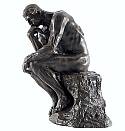 I recently received a few comments on this blog from a 12 year old girl. They were in two of my entries on religion, Why I Am an Atheist and The Book of Job. I left her a reply in that second entry, but I think the reply is good enough that I don't want it to get lost in the comments section. So, I'm posting it here in an entry of its own.
I recently received a few comments on this blog from a 12 year old girl. They were in two of my entries on religion, Why I Am an Atheist and The Book of Job. I left her a reply in that second entry, but I think the reply is good enough that I don't want it to get lost in the comments section. So, I'm posting it here in an entry of its own.
 I can't remember the exact reason now, but I recently did a Google search on 'book of job' followed by a rude word to describe a rude person. I know - not the most polite of searches, but that's what it was. And I came across a link to this page on Yahoo Answers,
I can't remember the exact reason now, but I recently did a Google search on 'book of job' followed by a rude word to describe a rude person. I know - not the most polite of searches, but that's what it was. And I came across a link to this page on Yahoo Answers, 
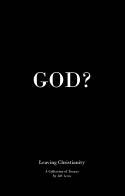
 Every two years, the National Science Foundation comes out with a report on Science and Engineering Indicators, detailing the state of science and engineering in this country, including public perception and understanding. The latest report is out at
Every two years, the National Science Foundation comes out with a report on Science and Engineering Indicators, detailing the state of science and engineering in this country, including public perception and understanding. The latest report is out at 